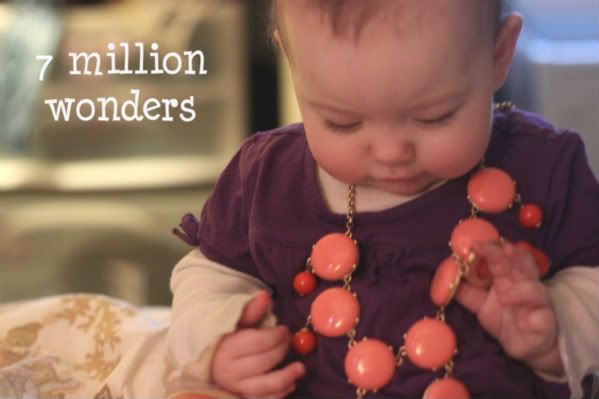There was a lot of talk, around the eleventh of this month, about how to talk to your kids about tragedy, and when to start. I didn't pay that much attention to it, partially because I rather prefer to go case-by-case and deal with each thing separately and personally, instead of having one over-arching "method" for dealing with tragedy. And it was partially because my littles are so little that there hasn't seemed much need for preparing myself for this particular stage of motherhood yet.
Or so I thought, until last Sunday morning, when we were out to breakfast with my parents before church, and the older gentleman at the table behind us had a stroke.
It was a quiet stroke - since I was sitting with my back to their table, at first I thought it was just a gentleman with Alzheimer's out with his family. The daughter kept saying "Dad, it's time to go home now." Then there would be a pause, then she'd say again, "Dad, are you ready to go home?" Then the staff brought out a wheelchair, then my own father went over to ask if he could help (he knew the gentleman personally), and it slowly dawned on me that this was more than just Alzheimer's stubbornness.
(On a side note, "just" Alzheimer's stubbornness sounds ridiculous, when you think about what that entails. Which I do, all the time, thanks to my grandmother's condition.)
Eventually, they had to call 911, and the paramedics came and loaded him up on a gurney and carried him out to the ambulance. By that point, he was responding physically, squeezing their hands when they asked and even attempting to smile, though he wasn't speaking.
And my girls sat there through it all. By God's grace, Joy, who would have paid exquisitely close attention to it all and been very disturbed by it, was sitting next to me, and could only see bits and pieces out of the corner of her eye (thanks to our persistent reminders that turning one's head to stare at anyone is not polite). Grace could see it all, but she was more interested in the pond out the window than anything else. She pays attention to everything, too much of everything, to be affected much by any one thing.
So all I really had to do was explain to Joy that the funny-looking bed was for when people weren't feeling well enough to walk on their own, and they were taking the nice gentleman to a place where they would help him feel better. And she accepted that, and Grace was persuaded to not run over to try to climb on the gurney, and then the paramedics and the family left, and that was that.
Not a huge deal, not like someone died behind us, but still enough of a poignant reminder to me of the fragility of life, and the ever-hovering presence of tragedy. What would I have told them if it had been more dramatic, if it had been so noticeable even Grace couldn't remain oblivious? What will I tell them, in a year or two years or however much longer she holds on, when we have to go to Great-Grandma's funeral? How do you explain death, and sickness, and tragedies, and the cruelty of some aspects of life, to children who, thank God, have only ever known the beautiful side of this world?
Even more, how to explain the deliberate cruelty of some people, whether it be a schoolyard bully or a terrorist?
I'm not sure, yet. But I think I need to start figuring it out, at least how to break things down into a basic explanation that can be adapted to specific circumstances, lest the next time we confront the harsher realities of life, my children turn to me for answers, and I am left with nothing to say.

I hope they see the beautiful side of life for as long as possible. And I know that you WILL be able to teach them to find the beauty in life even amid the things that are dark and ugly. And maybe that's all you can do?
ReplyDeletePS: Did you get an update on how the man is doing now? Has your father heard anything from the family? I'll be thinking of him and hoping for the best.
ReplyDeleteI haven't heard anything, but I'll ask my dad the next time we talk. He tends to hear most of what happens in town.
ReplyDelete